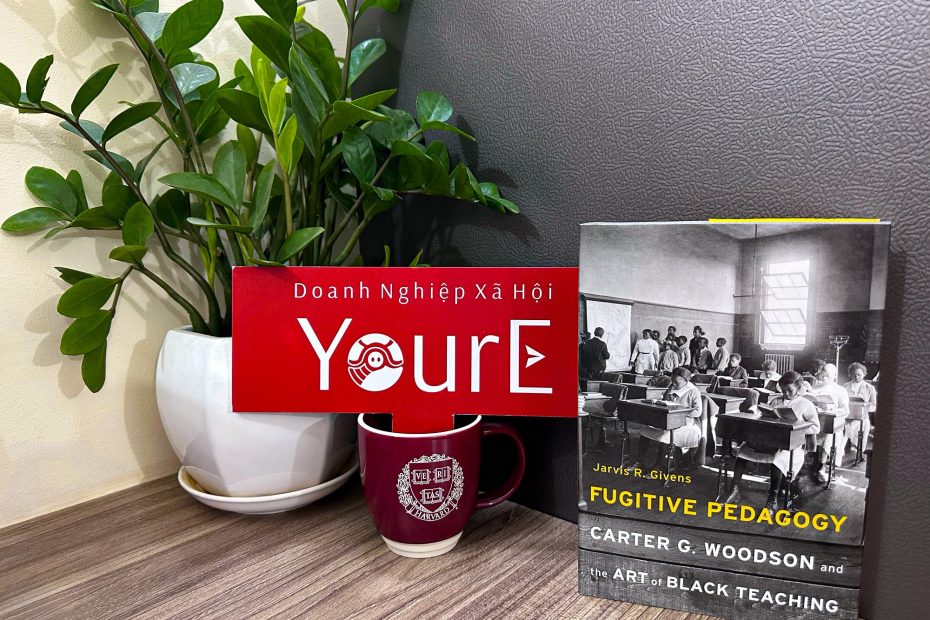A fresh portrayal of one of the architects of the African American intellectual tradition, whose faith in the subversive power of education will inspire teachers and learners today.
Black education was a subversive act from its inception. African Americans pursued education through clandestine means, often in defiance of law and custom, even under threat of violence. They developed what Jarvis Givens calls a tradition of “fugitive pedagogy”―a theory and practice of Black education in America. The enslaved learned to read in spite of widespread prohibitions; newly emancipated people braved the dangers of integrating all-White schools and the hardships of building Black schools. Teachers developed covert instructional strategies, creative responses to the persistence of White opposition. From slavery through the Jim Crow era, Black people passed down this educational heritage.
There is perhaps no better exemplar of this heritage than Carter G. Woodson―groundbreaking historian, founder of Black History Month, and legendary educator under Jim Crow. Givens shows that Woodson succeeded because of the world of Black teachers to which he belonged: Woodson’s first teachers were his formerly enslaved uncles; he himself taught for nearly thirty years; and he spent his life partnering with educators to transform the lives of Black students. Fugitive Pedagogy chronicles Woodson’s efforts to fight against the “mis-education of the Negro” by helping teachers and students to see themselves and their mission as set apart from an anti-Black world. Teachers, students, families, and communities worked together, using Woodson’s materials and methods as they fought for power in schools and continued the work of fugitive pedagogy. Forged in slavery, embodied by Woodson, this tradition of escape remains essential for teachers and students today.
Review
“Through meticulous research, Givens has reconstructed the radical historical methods, teaching ethic, and writings of Carter G. Woodson; his book is a long-overdue labor of love and analysis…I have nothing but admiration for this outstanding contribution to the history and theory of Black education…A tremendous offering and one that would make Woodson, the ever-rigorous teacher, proud.”
―Randal Maurice Jelks, Los Angeles Review of Books
“Takes the case of historian and ‘father of black history’ Carter G. Woodson as a prism to uncover a dissenting tradition of American learning, in the history, theory, and practice of black educators…As departments and disciplines today scramble to decolonize their curriculum, Givens illuminates a longstanding counter-canon in predominantly black schools and colleges.”
―Victoria Baena, Boston Review
“Givens provides a new language for historians of education to understand the hidden pedagogical work of Carter G. Woodson and Black teachers during slavery and in the Jim Crow era…Intellectually stimulating and rigorously researched.”
―Jasmine Hawkins and Dionne Danns, Historical Studies in Education
“Fugitive Pedagogy advances the history of black education into new territory. Givens unveils a far more complex portrait of Carter G. Woodson than we have seen, one of a scholar influenced by, and interconnected with, other educators. He rightly situates Woodson as part of a larger network of advocacy and pedagogy, in which the vision and practice for revisioning African American education are collaborative.”
―Vanessa Siddle Walker, author of The Lost Education of Horace Tate
“Eloquently written, brilliantly argued, and rigorously researched, Fugitive Pedagogy creatively explores the fascinating educational experiences, work, and philosophy of Carter G. Woodson, ‘The Father of Black History,’ as well as the worldviews and contributions of a group of under-acknowledged African American teachers during the era of Jim Crow segregation. Givens’ portrayal of the ‘art of teaching in the Black experience’ is refreshing and trailblazing. This wide-reaching book is a major contribution to the scholarship on the history of the early Black history movement.”
―Pero G. Dagbovie, author of Reclaiming the Black Past: The Use and Misuse of African American History in the 21st Century
“Fugitive Pedagogy is a brilliant, inspiring, and energizing book that reclaims the narratives of critique and hope that fueled the deep grammar of pedagogical struggle that unfolded in both the experiences and narratives of Black educators in the beginning of the twentieth century and beyond. Written in a discourse that is critical, poetic, and inspiring, Givens not only unearths a hidden history of educational struggle, he also offers educators a resource for rethinking the meaning and purpose of education and pedagogical struggle as tools of enlightenment, struggle, and racial justice.”
―Henry A. Giroux, author of Race, Politics, and Pandemic Pedagogy: Education in a Time of Crisis
“Jarvis Givens’s Fugitive Pedagogy is a brilliant, fascinating, and groundbreaking text. Givens restores Carter G. Woodson, one of the most important educators and intellectuals of the twentieth century, to his rightful place alongside figures like W. E. B. Du Bois and Ida B. Wells. Woodson was unrivaled as a key architect of Black Studies and one of the earliest Black public intellectuals. In this transformative work, Givens rigorously examines critical pedagogy as an essential element in the Black intellectual tradition and, indeed, one situated at the very heart of Black Studies from its beginnings.”
―Imani Perry, author of May We Forever Stand: A History of the Black National Anthem
“Informative and inspiring…a significant contribution of the history of Black education in the United States…An homage to the achievement of an often-forgotten racial pioneer.”
―Glenn C. Altschuler, Florida Courier
About the Author
Jarvis R. Givens is Professor at the Harvard Graduate School of Education. From 2020–2021, he was the Suzanne Young Murray Assistant Professor at the Radcliffe Institute for Advanced Study at Harvard University.










